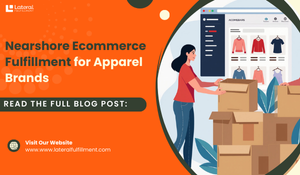Nearshore Ecommerce Fulfillment for Duty Deferral
In today’s ecommerce landscape, every dollar counts. Rising tariffs, tighter margins, and increased competition are forcing brands to rethink their logistics. One important benefit of nearshore ecommerce fulfillment is that it allows you to postpone duties and taxes. You only pay these fees after the products are sold.
This isn’t just a tax perk; it’s a strategic cash flow solution that gives brands the flexibility they need to grow.
Why Duties Hurt Cash Flow
When importing directly into the U.S., duties and taxes are due the moment goods enter the country. That means ecommerce brands pay significant upfront costs on inventory that hasn’t even sold yet.
The result:
- Capital locked up in inventory.
- Tighter cash flow for marketing and growth.
- Higher financial risk if products don’t sell as quickly as expected.
The Nearshore Solution: IMMEX & Bonded Warehouses
By leveraging fulfillment services in Mexico, brands can take advantage of programs like IMMEX and bonded warehouses. Here’s how it works:
- Deferred Duties → Duties and taxes are not paid when products arrive in Mexico. Instead, they are only triggered once goods are exported and sold into the U.S.
- Pay-As-You-Sell Model → Instead of paying duties on your entire inventory upfront, you pay gradually, in sync with actual sales.
- Cash Flow Freedom → More capital stays in your business, available for marketing, product launches, or scaling operations.
Why Fulfillment in Tijuana is a Competitive Edge
When it comes to nearshore ecommerce fulfillment, location is everything. Operating from fulfillment centers in Tijuana provides brands with:
- 1–3 day U.S. delivery times, covering key U.S. markets quickly.
- Lower warehousing and labor costs compared to onshore U.S. fulfillment.
- Seamless cross-border operations managed by experienced teams.
- The ability to scale during seasonal peaks without major overhead.
Tijuana’s proximity to the U.S. border makes it one of the most strategic locations for ecommerce brands looking to balance speed, cost, and customer satisfaction.
Key Benefits of Nearshore Ecommerce Fulfillment
- Optimized Cash Flow: Free up working capital to reinvest in growth.
- Lower Risk: Reduce exposure if products sell slower than forecasted.
- Scalability: Add SKUs and expand inventory without massive upfront tax burdens.
- Cost Savings: Combine duty deferral with up to 30% labor and warehouse savings.
- Faster Deliveries: Fulfillment in Tijuana ensures 1–3 day shipping across the U.S.
Example: Apparel Brand Scaling with Duty Deferral
Imagine a fashion brand importing $2M worth of seasonal inventory.
- Onshore Fulfillment (U.S.) → Duties are paid immediately, before a single product is sold.
- Nearshore Fulfillment (Mexico) → Duties are deferred, and the brand pays them gradually as products ship to U.S. customers.
Why This Matters More Than Ever
With Section 321 suspended, ecommerce brands can no longer rely on duty-free small parcel imports. But that doesn’t mean the game is over. Nearshore ecommerce fulfillment is a sustainable, long-term model that protects margins and keeps cash flow flexible—even when trade rules shift.
Strategic Takeaway
Don’t let upfront duties choke your growth. With IMMEX and bonded warehouse programs, nearshore fulfillment services in Tijuana allow you to align tax payments with actual sales — a smarter, leaner way to scale in today’s market.
At Lateral Fulfillment, we help ecommerce brands transition into cross-border operations that cut costs, improve cash flow, and deliver U.S.-wide in 1–3 days.
Ready to see how nearshore fulfillment could strengthen your growth strategy? Request a Quote


